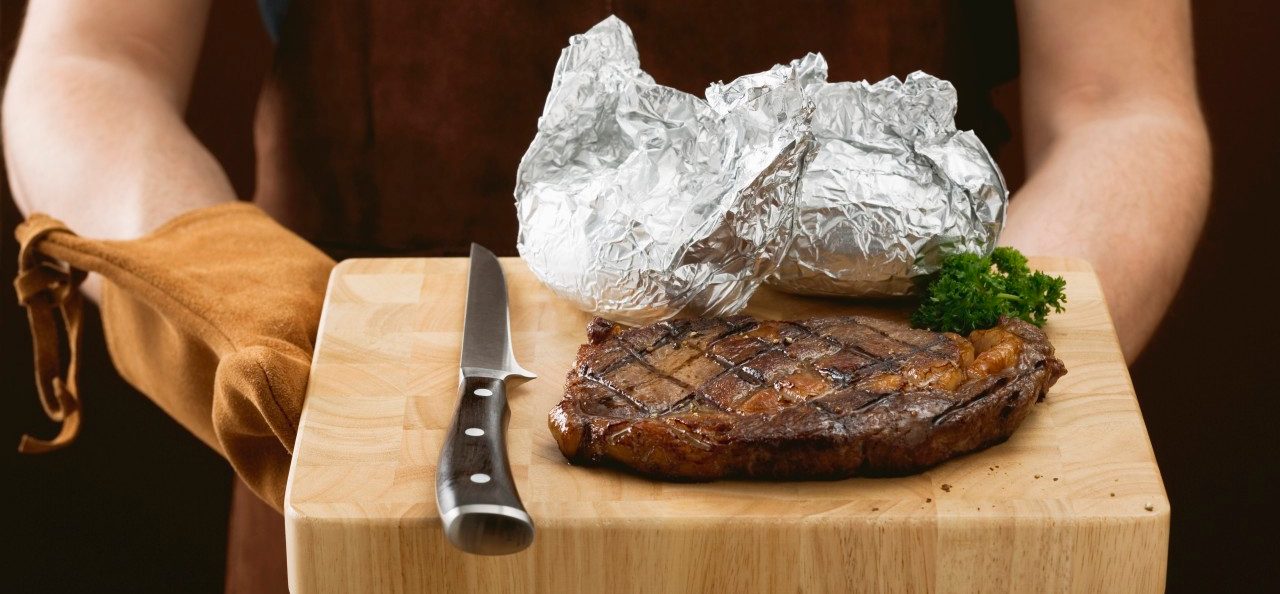More Science Behind the Case Against Eating Red Meat

The key is not to consume too much.
You’ve heard before that eating red meat can increase the risk of heart disease and stroke. New research is coming in to support that argument, and helps explain why.
YOU MIGHT ALSO LIKE: Are You Eating the Right Amount of Meat?
A Cleveland Clinic analysis — drawing on research with more than 4,000 patients as well as other animal studies — showed that microbes in the gut respond to a plentiful nutrient in meat, choline, producing the compound trimethylamine N-oxide, or TMAO. More TMAO, which makes blood platelets more active and alters arterial walls, means more risk of blood clots and blockages that lead to strokes and heart attacks.
Other research has tied higher levels of another nutrient in red meat, L-carnitine, to more TMAO in the blood. Compared to vegans and vegetarians, people who ate red meat produced more TMAO when they took L-carnitine — and the researchers also identified specific gut bacteria associated with more TMAO in the meat eaters.
What’s the connection with heart disease? If the gut bacteria were present, feeding mice extra L-carnitine — or choline, it turned out — interfered with the process in which cholesterol is ferried to the liver to be excreted rather than gum up the heart walls in plaque.
If you are familiar with health food stores, you may be surprised to hear that choline and L-carnitine are tied to heart disease. Both are sold as supplements. Although the liver manufactures some choline, most people also need to get choline from food, and egg yolks, beef liver, beef, and pork are plentiful sources. Vegetarians sometimes take supplements instead. Athletes may take L-carnitine to avoid sore muscles after exercise.
The bottom line is that neither choline nor L-carnitine are bad guys, but you don’t want too much of them, either. The key to health is balance.
YOU MIGHT ALSO LIKE: Why Don’t Americans Eat More Fruits and Vegetables?
Does this new research mean you should take probiotic supplements to “fix” your gut bacteria? Scientists who study the gut say it’s not that simple. “I don’t think people need to go to the store and just take anything that says ‘probiotics,’” Stanley Hazen, MD, PhD, a molecular biologist and lead author of the Cleveland Clinic study, told StatNews. “Even if you are the most ardent vegan eating a cucumber, you’ll still have these bacteria. They’re just suppressed until you feed them choline.”
Other foods that produce TMAO in the body include lecithin, found in eggs (and added to chocolate), and fish and shellfish. Should you banish those foods from your diet? Not at all.
What you can do is avoid foods processed with lots of salts — think hot dogs and sausage — and keep your consumption of animal protein down as you approach age 65. In a large 18-year study, people ages 50 to 65 who said they got 20 percent or more of their daily calories from animal protein were more likely to die of any cause, and four times more likely to die of cancer or diabetes. But over the age of 65, eating that much protein may protect against some forms of cancer. And separate research shows that meat consumption can help protect seniors from losing muscle strength and breaking their bones if they fall.
The committee advising the agency that makes official diet recommendations had suggested telling Americans to cut back on red meat. Instead, the 2016 recommendations emphasize a "shift towards other protein foods" — including more nuts and seeds and about 8 ounces of seafood per week, based on a 2,000-calorie-a-day diet.
Diet science is complex, and it’s not clear that the same diet is good for everyone. Especially if you’re middle-aged and heart disease runs in your family, or you have other risk factors like diabetes, smoking, obesity, and lack of exercise, keeping your red meat consumption down seems like a good idea.
Updated:
April 09, 2020
Reviewed By:
Christopher Nystuen, MD, MBA